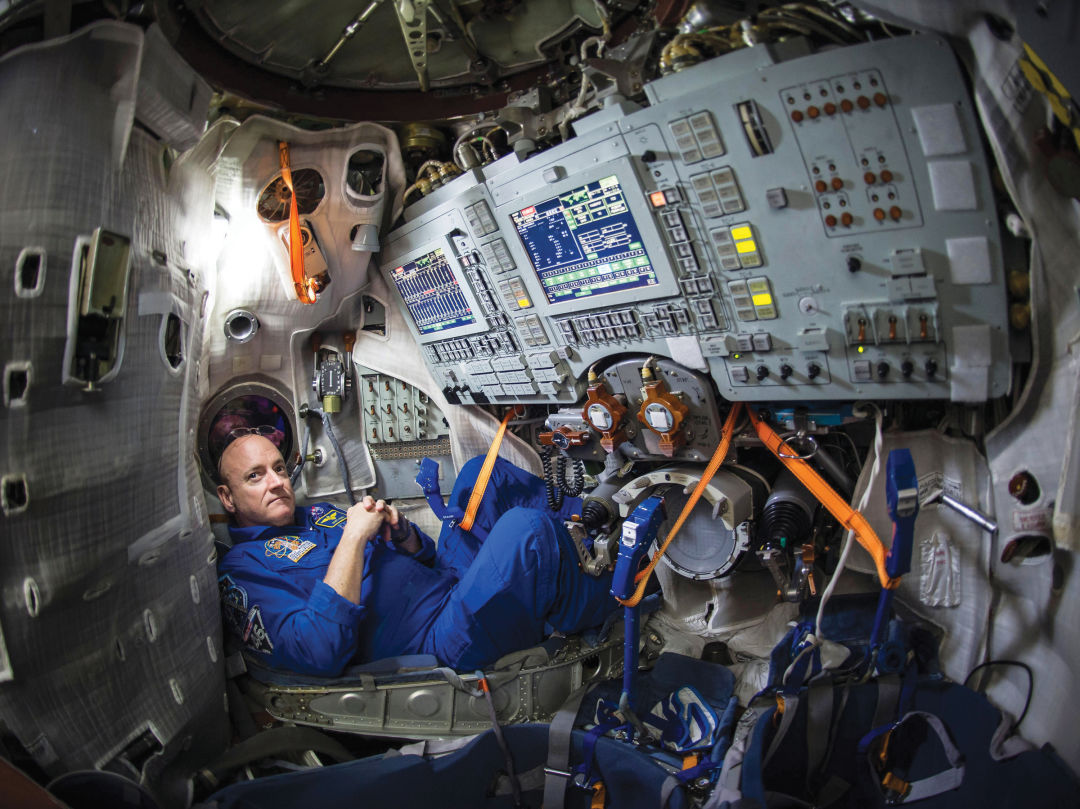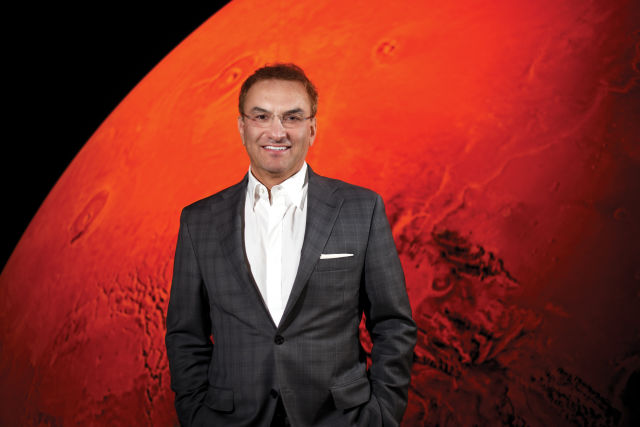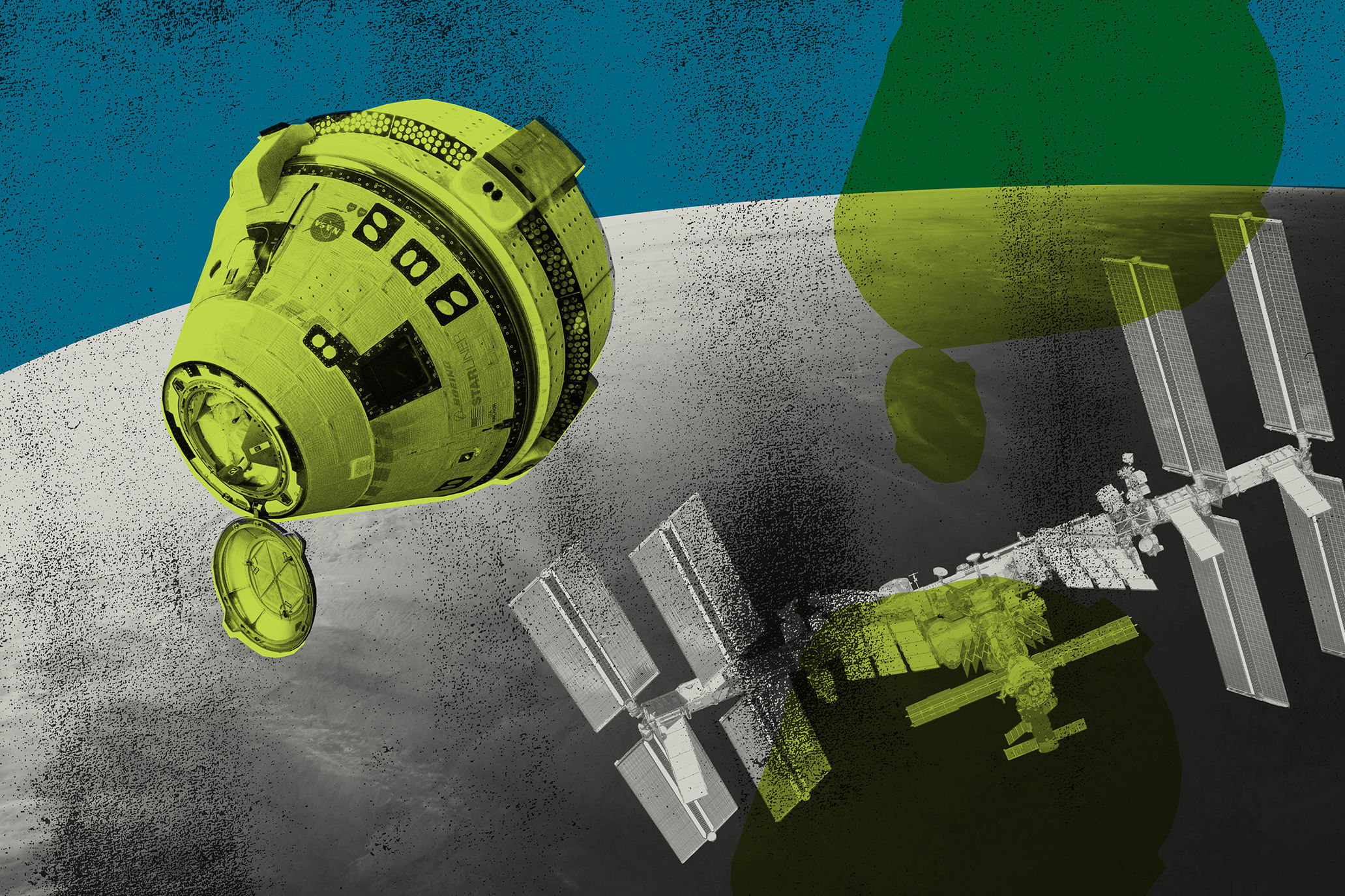How Does Space Affect the Human Body? Baylor College of Medicine Is Trying to Find Out

Scott Kelly spent almost a year in space, which affected his body in ways expected and unexpected.
Image: Bill Ingalls/NASA
In March 2016, Scott Kelly returned to earth after 342 days on the International Space Station. When the now-retired astronaut got here, he was two inches taller, with deteriorated eyesight and feet so delicate he couldn’t walk, which was expected. But doctors also found that his brain had swollen and that some of his genetic material had changed, findings they’re still working to explain.
“The rocket science is much further ahead than the medical research and the medical support,” says Jeffrey Sutton, professor and director of Baylor’s Center for Space Medicine. “It’s just a very large unknown.”

Dr. Jeffrey Sutton leads the Center for Space Medicine.
While humans have been traveling to space since 1961, space medicine is a relatively new field. NASA and Baylor established the National Space Biomedical Research Institute—the first program of its kind—in 1997, and Sutton took over as director there in 2001. But with the institute’s funding only secure through 2017, its future was uncertain. In 2008, Sutton proposed the Center for Space Medicine, a permanent academic program at Houston's Baylor College of Medicine devoted to understanding the effects of space travel on human health.
Today, the center—which offers the only four-year space medicine track for med students in the entire country—has 15 professors. In 2016, it received a $246 million grant from NASA to develop new technologies to sustain astronaut health during deep space missions. “We’re able to fill an incredible gap related to the intersection between space and medicine,” Sutton says, “to help inspire and train the next generation.”
It’s hard to imagine the Center for Space Medicine existing in any other city. After all, Houston is home to not only NASA and the Texas Medical Center —the largest of its kind in the world—but also a tremendous can-do spirit. “I can guarantee that you would never see that anywhere else but here,” says Sutton, who’s originally from Toronto. “Here, it’s like, ‘Okay, let’s do it.’”
With NASA planning to have boots on Mars by the 2030s, and commercial space travel already becoming a reality, the center’s mission will only become more relevant. In December, in fact, it announced a partnership with Virgin Galactic.
As we barrel into the future, Sutton and the center’s other researchers plan to tackle the many questions that still need answering. For starters, how do more frequent, and/or longer, trips to space affect the body? What role does prolonged exposure to microgravity play? What kind of screenings might passengers and pilots need? Which pre-existing conditions might disqualify a passenger from taking a commercial space flight? And what about dealing with travelers' medical conditions on-board?
When the time comes, Suttons believes his team will have made enough discoveries of their own, they’ll be able to provide excellent support to explorers setting foot in strange new corners of the universe. “What goes on here is spectacular,” he says. “What exists here exists nowhere else in the world.




